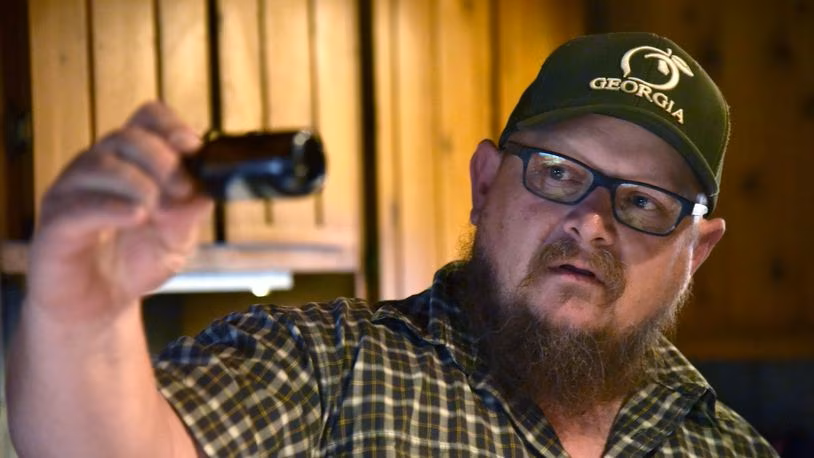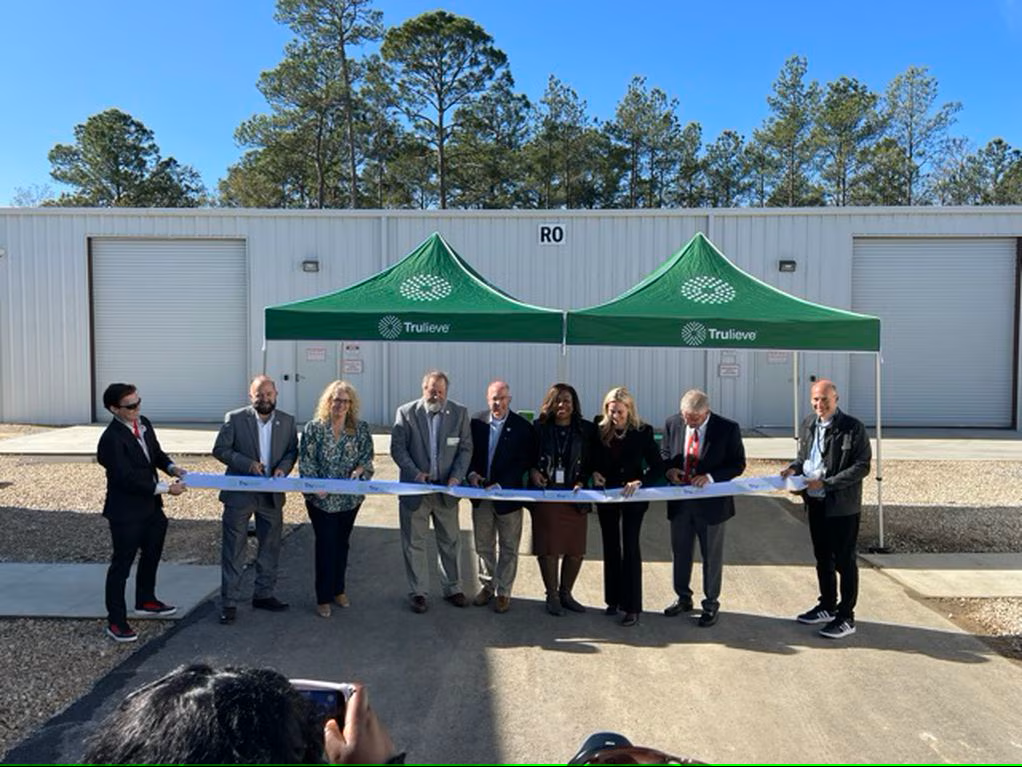
Jim “J-Bo” Wages holds a bottle of cannabis oil for his daughter, Sydney, at their home in Dallas in 2017. The family was among the very first to receive permission from Georgia to use low-dose cannabis oil without fear of prosecution. HYOSUB SHIN / HSHIN@AJC.COM
By Mark Niesse
House committee passes bill for marijuana expansion and transparency
A bumpy start to Georgia’s medical marijuana program could be resolved, lawmakers say, by a bill that would expand production, increase transparency and end lawsuits.
State representatives voted in a committee to pass the bill last week, and it could soon receive a vote in the full Georgia House.
Though two companies are planning to open Georgia’s first medical marijuana dispensaries as soon as late spring, lawsuits have held up production licenses to four additional companies that were set to receive them under a state law approved nearly four years ago.
Meanwhile, about 27,000 registered patients are still waiting to be able to legally buy a product they’ve been allowed to consume since 2015.

Trulieve Cannabis Corp. hosted a ribbon cutting for its production facility in Adel on Dec. 2, 2022. Trulieve is one of two companies awarded a license to produce low THC oil in Georgia for the treatment of several approved illnesses, including severe seizures, Parkinson’s disease and terminal cancers.
The legislation attempts to open up the market by awarding licenses to the four pending companies along with eight more companies that weren’t selected but filed lawsuits, alleging that the competitive selection process set up by the General Assembly was secretive, inconsistent and unfair.
By licensing them all, supporters of the bill said pending lawsuits would become moot and the program could move ahead without waiting months or years for court cases to be resolved, said state Rep. Alan Powell, a Republican from Hartwell who sponsored the measure, House Bill 196.
Legislators share some of the blame. They passed laws that made most of the marijuana companies’ information confidential, unlike other competitive bids for government contracts, fueling suspicion that the most qualified companies didn’t receive licenses. HB 196 would remove those secrecy protections.
“It was a major show of how government shouldn’t work,” Powell said during a hearing of the House Judiciary Non-Civil Committee on Wednesday. “Nothing good comes out of government behind closed doors — nothing — because you don’t know who’s responsible and whether things are being done the right way.”
While most of the committee supported the bill, state Rep. Deborah Silcox said she’s worried that it would allow too many medical marijuana companies at once, reducing profits and resulting in a black market. Silcox disclosed that she worked as a consultant for a company that applied for a production license but didn’t say which one.
“I want to help these people, and I want them to have a source that’s ongoing so that the industry survives, people are helped and everybody makes money,” said Silcox, a Republican from Sandy Springs, one of two legislators on the committee who voted against HB 196.
Low THC oil is allowed for registered patients suffering from several approved illnesses, including severe seizures, Parkinson’s disease and terminal cancers. The oil can have no more than 5% THC, the compound that gives users a high.
Each of Georgia’s two licensed marijuana companies, Trulieve and Botanical Sciences, will be allowed to open up to six dispensaries across Georgia, according to a state law passed in 2019. Nearly 40 states already have medical marijuana programs.
Kristen Goodman, an attorney for several of the companies seeking a license, said that without legislation, additional licenses might not be issued for 18 months to two years while lawsuits work their way through the courts.
“We have ended up with a complete insult to the integrity of our procurement process. … It was a simple train wreck,” Goodman told the committee. “This (bill) is the best solution.”
Meanwhile, Georgia’s two licensed companies are getting closer to opening for business, said Andrew Turnage, executive director for the Georgia Access to Medical Cannabis Commission. Low THC oil still needs to be manufactured, tested and packaged before it can be sold.
“The production licensees are clearly on a path to opening those dispensaries in late spring,” Turnage said. “The dialogue has been in the future tense all the way up until now. That future tense is just weeks down the road.”
Read the original story on AJC.com.











